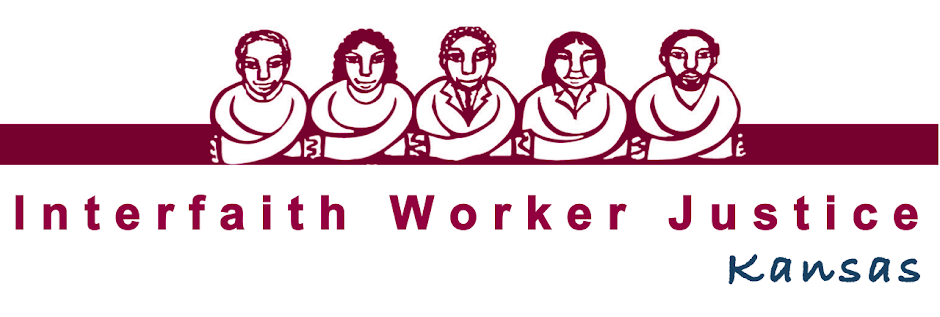This Sunday morning people in the Wichita awoke to the news that
75 percent of the members of International Association of Machinists and
Aerospace Workers Union, Local Lodge 639, who work at the Bombardier LearJet
plant voted to go on strike. The strike is scheduled to begin on Monday morning.
I ask people of all faiths to hold the workers, the managers and their
families in prayer today and throughout the coming days.
Based on news reports
one of the sticking issues is the length of the contract. The union wants three
years and management wants five years. The other issue is health care.
Survey data reports that health care is the second
most important issue for likely voters in the 2012 election, trailing only the
economy. Health care is also a core value for all faith traditions. All major
faith traditions believe in human dignity and all advocate that adequate, affordable,
accessible, proper health care as a basic human right. As people of faith we
envision a society in which each person has proper health care. While there are
differences among and within faith traditions, there is no disagreement that national
health care is a basic right and health care reform is needed. The U.S.
is the only industrialized nation that does not have a national health care
program, and until this is achieved we must do all we can to keep inclusive
heath care available and affordable.
My own faith tradition, the United Church of Christ, draws
inspiration from the well-known story of the Good Samaritan (the Gospel of Luke
10: 29-37), which it calls “a clear case for universal health care.” The command of Jesus to follow the example of
the Samaritan in this parable means that we cannot rest until proper health
care is provided for everyone.
A recent online article by Eleni Towns, a Research Assistant
with the Faith and Progressive Policy Initiative at the Center for American Progress
speaks to this issue. Her article, titled “The New Value Voters: Health Care,” is
an excellent introduction for a congregational study on what different faith
traditions advocate for health care— www.americanprogress.org/
Faith communities
have long been on the front lines when it comes to providing direct services,
advocating for health care reform and providing a moral vision for it. Roman
Catholic hospitals account for more than one-fifth of all admissions in the
country. Muslim-run clinics in Chicago, Houston and Los Angeles serve all who
come, regardless of the ability to pay. Several faith-based health care
organizations around the country do the same. In addition, many congregations sponsor
health screenings, nutrition education programs, and parish nurse or counseling
services.
In 2009 members of Faith for Health, a coalition of more
than 30 mainline and evangelical Protestant communions, Catholics, Muslims,
Jews, and Buddhists came together to support the Affordable Care Act. In August
of 2009 this same coalition sponsored a conference call with President Obama
that included 140,000 people of faith.The coalition also sponsored visits to
more than 100 members of Congress. In addition there were local campaigns and
forums sponsored by faith communities around the country. In September of this
year, 2012, more than 100 national and state faith leaders called on governors and
state legislators to expand Medicaid programs to cover millions of low-income
Americans.
Organized labor and faith communities are telling us that it
is time to lift up the bottom line. In an era when our humanity is pitted
against economic determinism and political fatalism we must come together and craft
a new economic and a political policy that is not divorced from the daily
reality of our lives and the welfare of our community. In the Preface to Mis-Measuring Our Lives: Why GDP Doesn’t Add
Up (New York: The New Press, 2010), the former French President Nicholas
Sarkozy writes, “We cannot focus solely on the data that market supplies us. By
acting as though the market were the source of all truth, you wind up believing
it.” While statistical indicators are important and indeed necessary, by
themselves they do not and cannot give us a sense of meaning, responsibility
and vision. Put otherwise, the market is not the measure of our well-being; our
well-being is the measure of the market.
Now is the time to speak out and speak up for a health care
system that reflects the values of human dignity, shared responsibility,
compassion, stewardship of resources and concern for our neighbors.
Rev.David Hansen, Ph.D.
Executive Director/Organizer
Interfaith Worker Justice Kansas

No comments:
Post a Comment
Thank you for your comment. We welcome your respectful participation in our blog community.